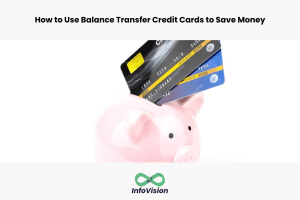Using credit cards can be a powerful financial tool, but it can also lead to serious financial problems if not used correctly. Knowing common credit card mistakes and how to avoid them can help you keep your finances in order.
By understanding the right steps to manage your card expenses, you can avoid falling into the financial traps that many encounter. Let’s explore some common mistakes and strategies to avoid them.
Read on to discover the credit usage pitfalls you should avoid and how to make smarter use of your credit card.
1. Not Paying the Full Balance
One of the most common mistakes is carrying a revolving balance on your credit card. This can result in high-interest charges and a growing debt over time.
To avoid this, try to pay the full balance of your card each month. This prevents interest from accruing and helps maintain your credit score.
If paying the full balance isn’t possible, make larger payments than the minimum required to reduce the debt more quickly.
2. Ignoring Your Credit Limit
Exceeding your card limit can result in extra fees and can also negatively affect your credit.
Keep your spending below 30% of the available limit to avoid these issues. This also helps maintain a good debt-to-credit ratio.
Regularly monitor your credit usage through mobile apps or your card issuer’s website.
3. Not Reviewing Your Monthly Statement
Many people make the mistake of not checking their credit card statements monthly, which can lead to paying erroneous charges.
Review your statement monthly to ensure all transactions are accurate. If you find an unknown transaction, report it immediately to your issuer for investigation.
Doing so can also help you identify unnecessary spending patterns that can be reduced.
4. Paying Late
Paying credit card bills late can result in fines and negatively affect your credit score.
Set monthly reminders to ensure your payments are made on time. Many card issuers offer the option of automatic debit, which can be helpful to stay on track.
Make sure the payment has been processed and credited correctly to avoid late fees.
5. Applying for Too Many Credit Cards
Applying for multiple credit cards in a short period can negatively impact your credit score due to multiple credit inquiries.
Be selective when applying for new cards. Research which card best meets your needs before applying for a new one.
Managing multiple cards requires organization and discipline to ensure all payments are made on time.
What is a Credit Card?
A credit card is an electronic payment method that allows the purchase of goods and services based on a pre-approved credit limit set by the card issuer.
Card issuers, such as banks and financial institutions, grant this credit limit with the expectation that the cardholder will pay back the amount used, plus interest if not paid in full within a certain period.
It’s a useful tool for building credit history, making online purchases, and handling financial emergencies, as long as it’s used responsibly.
Understanding Interest Rates
Credit cards typically have high-interest rates, known as the Annual Percentage Rate (APR).
If you don’t pay your full balance each month, interest will be charged on the remaining balance, which can accumulate over time and make the debt much harder to pay off.
Understanding how interest rates work can help you avoid falling into the trap of high-interest charges.
Importance of Maintaining a Good Credit History
A good credit history can open doors to better interest rates on loans and other financial services.
Paying your bills on time, maintaining a low credit utilization rate, and having a healthy mix of credit are essential for building and maintaining a good credit history.
Checking your credit report regularly to ensure all information is correct is also a good practice.





